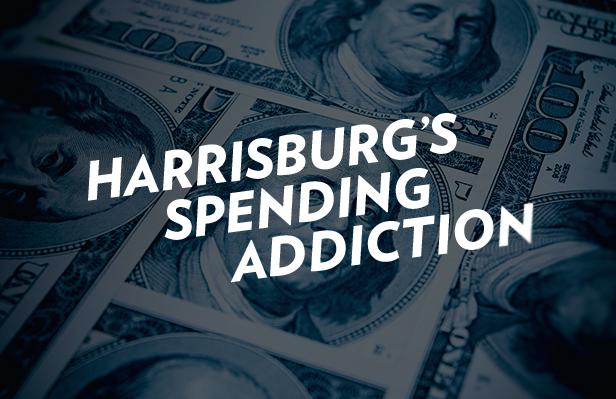Media

IFO Projects $1.7 Billion State Budget Deficit in 2019
Last year’s state budget boasted a series of firsts. It was the first budget in four years enacted before the June 30 deadline and represents the only budget Gov. Wolf has signed. It also increased education spending without additional taxes.
Unfortunately, this “election year budget” simply postponed costs until after the election.
As a result, the Independent Fiscal Office (IFO) projects a $1.7 billion deficit for next year—despite a strong economy and revenue growth. As the bills become due, spending will far exceed Pennsylvania’s economic growth.
IFO Budget Projections:
- $1 billion in General Fund revenue growth, or 3.0 percent. (Chart here or below)
- $2.9 billion increase in General Fund expenditures, or 8.9 percent.
- The largest driver is a projected $1.8 billion spending increase in the Department of Human Services (DHS, formerly Public Welfare)–a whopping 14.8 percent increase!
- In addition, the IFO expects DHS to be $200 million over-budget this year, requiring “supplemental appropriations” to cover this overspending under the Wolf administration.
Thankfully, despite this looming deficit, Gov. Wolf has pledged on multiple occasions not to raise taxes.
If Gov. Wolf keeps his campaign promise, he’ll have to recognize the problem with chronic overspending and with using one-time gimmicks to spend beyond taxpayers’ ability to pay.
As Commonwealth Foundation noted, last year’s state budget included several hundred million in hidden Human Services spending increases—costs paid using one-time revenue sources outside the General Fund. Further, debts and payments hidden by temporary cost-shifting will be due in 2019-20.
End of One-Time Cost Shifts & Gimmicks:
- $351 million in DHS costs were paid for by excess gross receipts tax revenues.
- $342 million in DHS costs were paid by a tobacco lawsuit windfall.
- $165 million must be repaid to the Workers Compensation Fund.
New Programs & Recurring Costs from Prior Debt:
- $214 million to repay PlanCon Bonds (used for school construction).
- $150 million payment to General Assistance, a program Gov. Wolf unilaterally reinstated after the state Supreme Court ruled the legislation that eliminated GA was passed unconstitutionally. The legislature didn’t provide funding for General Assistance, and hasn’t since 2012.
- $122 million in additional Medicaid costs, as the Federal Government reduces its reimbursement rate for Medicaid Expansion and CHIP.
- $89 million in Tobacco Settlement Fund bond payments. This is to pay debt on the $1.5 billion the state borrowed to balance last year’s budget.
- It’s assumed the General Fund will now pay for programs previously funded by the Tobacco Settlement Fund, which seems more likely than government cutting spending.
- $44 million in additional spending for State Police funding—this is part of a gradual shift to fund a greater share of State Police from the General Fund, rather than the Motor License Fund.
Government cannot continue to rely one-time revenue sources to pay the bills. Lawmakers can end deficits and avoid tax hikes by keeping spending growth in check.